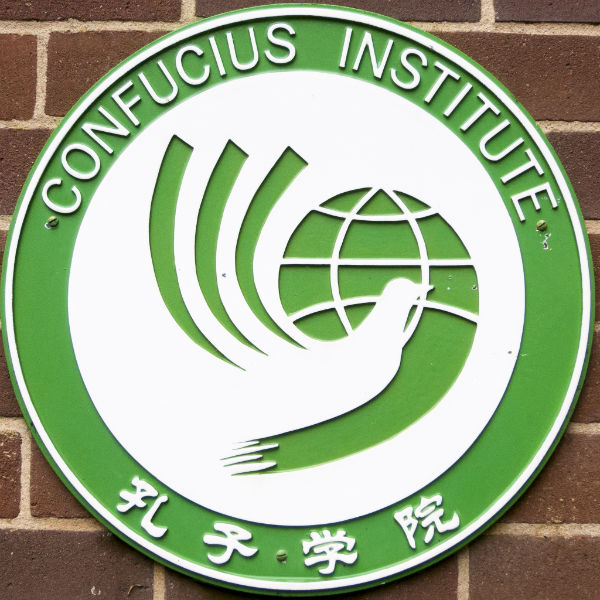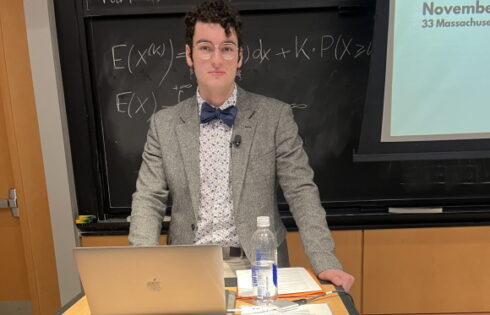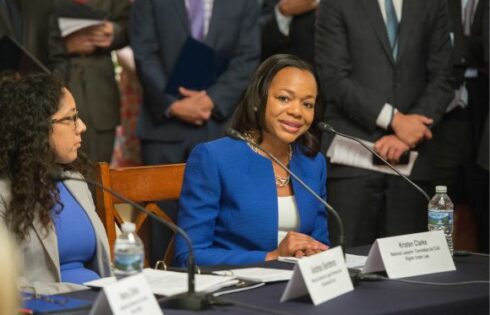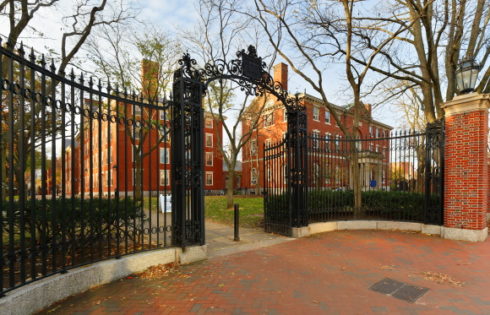
Maybe previous White House administrations ‘just didn’t care about foreign funding’
Since the Department of Education began cracking down on the failure to report riches from abroad, colleges across the country have become much more meticulous in their disclosure of assets from foreign funding, with some digging up records dating back to 2013.
A D.C.-based nonprofit has found that U.S. schools previously failed to report $1 billion, based on its comparison of the new disclosures with last year’s, now revealed to be massively incomplete.
Of that $1 billion, “About one-third came from countries known for their influence operations in America,” according to the Clarion Project, whose research challenges “Islamism, white supremacy, neo-Nazism, Antifa and other extremist ideologies.”
The country with the most previously unreported data is China, equaling $144 million from the Communist country across 48 American institutions over the last six years, the project found.
Newly reported income by universities from Saudi Arabia amounts to $70 million, and dates back as far as 2013. Some of the data from Turkey is just as old, with $8.5 million initially left hanging across half a dozen U.S. universities.
MORE: U.S. finally investigating secret foreign funding of universities
Initially unreported data from the United Arab Emirates totaled $16.6 million across eight schools. Russia’s appearance on the list was solely due to a $500,000 gift that New York University belatedly reported from 2018.
Three universities failed to report a total of $117 million in income from Qatar. (Most of that figure is made up of funds Georgetown and Texas A&M University failed to report and are already under investigation by the federal government.)
“Why did so many schools wait to disclose this data?” Alex VanNess, co-author of the Clarion Project report, asked rhetorically in a Saturday Zoom call with The College Fix.
One possible explanation: Previous White House administrations “just didn’t care about foreign funding” and had a “lackadaisical view” when it came to income monitoring, he said.
Years-late report of funds from ‘Confucius Institute Headquarters’
A federal law known as Section 117 requires colleges and universities to disclose all foreign incomes over $250,000 every six months. The Department of Education then releases it to the public.
The most recent disclosures were released in March and September 2019. The earlier disclosure was meant for universities to account for assets received from 2012 through the end of 2018. The newer one covers assets from 2013-2019.
If universities had acted in compliance with Section 117, the newest data set would mainly “just be overlapping information” from the previous disclosure, VanNess said.
But some schools had neglected the federal requirement altogether, and many others omitted old information from previous administrations. New data from 2017-2018 were also released.
The University of Delaware and Xavier University in Louisiana, for example, “never reported” their foreign income to the feds until the most recent data collection cycle, the report said.
In UD’s debut on the government’s foreign gifts and contracts report, the public university disclosed $3.4 million worth of assets from Turkey that also date back to 2013. The university did not respond to three email queries from The Fix starting April 19, asking for comment on its failure to disclose this information previously.
In its first foreign funding data filing in at least six years, Xavier finally reported $896,391 from China (“Confucius Institute Headquarters”) going back to 2013. Various senators have characterized Confucius Institutes as Chinese government operations to collect intelligence and access American research, as well as spread Chinese communist propaganda on campus.
MORE: 2 in 3 colleges with Confucius Institutes violated the law

Xavier isn’t the only offender in omitting years’ worth of income related to its Confucius Institutes. Several schools took six years and multiple federal investigations to turn over such information.
The University of Kentucky, for example, waited until the latest collecting period to disclose $2.6 million it received from Hanban, the Chinese agency in charge of the institutes, all of which was collected between 2013 and 2016.
Spokesperson Jay Blanton acknowledged the university’s delay in disclosing the funding in an email to The Fix Sunday. “Like a number of institutions, [UK] had some data reporting issues in our initial reports. Those have been corrected,” he said: “The funds being asked about have now all been properly reported to the federal government.”
The College of William & Mary also waited until the most recent period to report more than $714,000 in gifts from Hanban from 2013 and on.
The college “has been fully transparent about any foreign funding we have received,” News and Media Director Suzanne Clavet told The Fix. “We updated our formal Department of Education filing after new clarifications concerning Section 117 of the Higher Education Act were issued by the Department in compliance with the deadline.”
MORE: Senators pressure their universities to dump Confucius Institutes
San Diego State University finally reported $3.8 million from Hanban spanning six years as well. It did not respond to multiple inquiries throughout the week of April 20.
Identified as a threat by U.S. officials, the Chinese telecommunications company Huawei is known to dish out cash at American schools.
According to the new data set, Huawei spent a combined $3.1 million at the California Institute of Technology, University of Maryland, University of Washington and University of Wisconsin in 2018.
California’s Whittier College reported a $35 million income from a 2016 contract with the China-based “BEG Holdings, LP.” (The Fix could only find a California-based BEG Holdings, LP, which purchased property from Whittier.)
A Whittier spokesperson responded to a Fix query April 22, but that person has since not replied with any significant comment or statement.
‘We worked quickly to come into compliance’
Colleges reported years-old gifts from the Middle East as well.
California Polytechnic State University-Pomona reported more than 100 new assets amounting to over $2.7 million – though none is larger than $250,000 – from the Royal Embassy of Saudi Arabia that span 2013-18.
A university spokesperson took 10 days to respond to a query, providing a 2019 press release by the American Council on Education that asks the federal government for more clarity on foreign funding reporting requirements.
NYU also reported nearly $3 million in gifts from anonymous sources in the UAE that took place in 2015 and 2017. The University of Minnesota reported four contracts of $250,000 and more from 2014 with the UAE-based Petroleum Institute, adding up to more than $1.5 million.
Neither NYU nor the University of Minnesota respond to Fix emails the week of April 20.
The University of Arizona’s newly reported data from China that took place in early 2018 is from a “microcampus partner at Ocean University,” Communications Director Alexis Blue told The Fix, adding that the money is earmarked for tuition.
But it is not always mere money for tuition that is being wired to American campuses from overseas. Northwestern University, which has a satellite campus in Qatar, has received millions from that country.
MORE: Harvard and Yale under federal investigation for funding requests
It set up a journalism program at its satellite campus, in conjunction with the government-owned news outlet Al Jazeera, that encourages student journalists to intern and collaborate alongside state-run media editors and reporters.
Qatar has spared no expense in its funding of American higher ed. Between 2011 and 2016, Qatar was the top funder of U.S. universities, forking about $1 billion in gifts to American academia, according to reporting from June 2019 by the Daily Caller News Foundation.
It’s been clear that for a university to have a campus in Qatar is to cash out from the Qatar Foundation. In 2016, The Washington Post reported that Texas A&M pocketed $76 million to “operate” a campus in the country.
In 2018, the Qatar Foundation sued the Texas attorney general to prevent its contracts with Texas A&M from being disclosed as public knowledge, according to the DCNF. Now, Texas A&M is under federal investigation for failing to disclose information about its Qatari income.
China’s financial presence in American universities has also raised concern among lawmakers.
Last year, a Senate Homeland Security subcommittee released a report looking into the influence of foreign funding in U.S. universities, citing several problematic elements of Confucius Institutes on American campuses.
Several senators have recommended that universities shut down their institutes on campus. Arizona State University is among the schools that shuttered its institute after being denied a Pentagon waiver, the result of a 2018 law that bars federal defense money from Chinese-language programs at schools with Confucius Institutes.
MORE: Universities with Middle East campuses need ‘wake-up’ call
Over the past year, the Trump administration has shown no signs of easing on the gas pedal, with the Department of Education making an example of several schools.
The University of Maryland is the subject of a federal probe for omitting financial information it received from Chinese, Russian and Qatari contacts, the Post also reported.
A spokesperson was upfront about the university’s errors but added that it was not alone in omitting incomes from foreign sources in its reports.
“Once the university learned that we were not reporting this information, we worked quickly to come into compliance,” Media Relations Manager Hafsa Siddiqi told The Fix: “We join other universities in addressing this issue. The investigation is ongoing. We will continue to work with federal officials in a transparent and timely manner to resolve these issues.”
Georgetown Media Relations Manager Ruth McBain acknowledged the probe into its failure to report its treasure trove from China, Qatar, Russia and Saudi Arabia, and talked about the schools’ newfound commitment to compliance.
“Georgetown worked with the [Department of Education] and provided responsive information demonstrating that it has reported all required information. Georgetown has continued to utilize a careful, methodical process to ensure that all gifts from or contracts with a foreign source in excess of $250,000 are reported every six months for the relevant reporting time period,” she said.
In February, the feds dished out another pair of investigations into Harvard and Yale for failing to report hundreds of millions of dollars. The Department of Education also announced it uncovered $6.5 billion in previously omitted assets across 10 universities.
The Department of Education is scheduled to release its next biannual report on foreign income received by American colleges and universities in August.
MORE: UMass-Boston demands $1,500 to share Confucius Institute emails
IMAGES: wavebreakmedia/Shutterstock, Mark Morgan/Flickr
Like The College Fix on Facebook / Follow us on Twitter






Please join the conversation about our stories on Facebook, Twitter, Instagram, Reddit, MeWe, Rumble, Gab, Minds and Gettr.